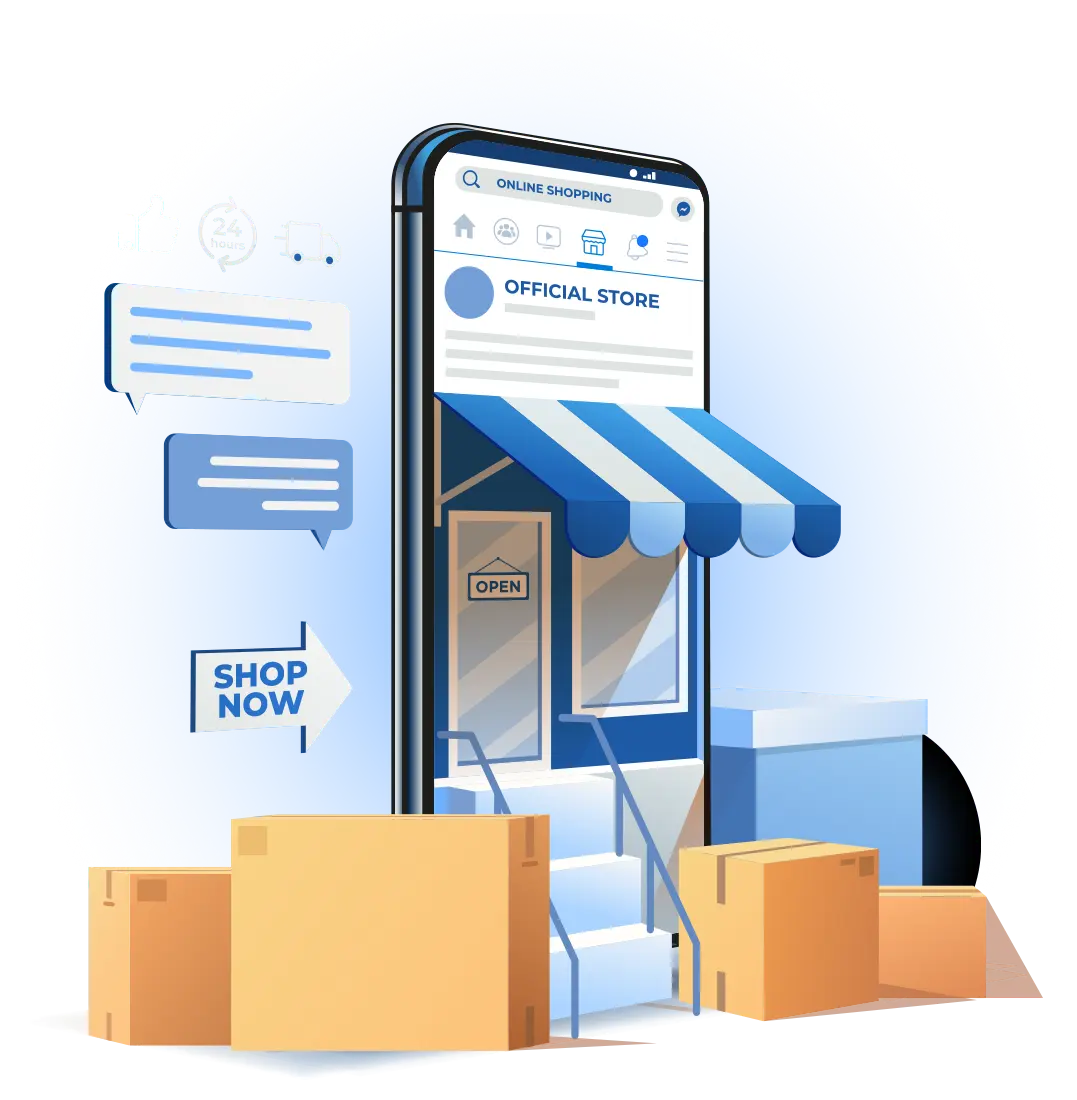
eCommerce growth constantly brings new B2B eCommerce trends, which generally change from year to year based on new technology and what businesses are looking for.
In this post, we are going to discuss some hot eCommerce trends in the B2B eCommerce market that you should keep an eye on for the rest of year. We’ll also talk about the strategy behind these trends and how you can apply them to different kinds of businesses.
These are the top B2B eCommerce trends:
- Artificial Intelligence
Nowadays, more and more online stores integrate the so-called conversational commerce. They integrate AI chatbots and text-to-speech recognition technologies to help customers make purchasing decisions.
However, in 2018 the conversational commerce trends are also expanding to B2B markets, and it goes much deeper than chatbots. eCommerce strategists use AI as a part of B2B sales strategy because of its ability to predict sales, optimize prices, and calculate discounts based on similar customer profiles.
Modern technologies such as cloud computing and the availability of software APIs have made AI more accessible to all types of businesses, including B2B eCommerce companies.
- Dynamic Pricing
In 2016, Gartner predicted that by 2018 nearly a half of all existing B2B eCommerce websites will be using Configure Price Quote (CPQ) tools.
These tools use special algorithms to adjust product prices based on several factors, such as sales volumes and order history. As a result, such trends in eCommerce help businesses configure prices to the unique needs of customers. This helps them provide a personalized experience. Besides, the prices will be transparent, without any hidden extra fees.
- B2C-like Experience
The B2C expectation of instant service, such as those of Amazon or AliExpress customers, are now also in effect for eCommerce B2B businesses. As B2B customers come to expect the same quality of service, today’s B2B eCommerce products and software are finally able to provide the same smooth user experience.
Moreover, according to the same research from Gartner, 70% of eCommerce businesses will be focusing on delivering individual customer experience by 2018. The researchers emphasize that such experience will be something else than that of “traditional” B2B and B2C models.
- Synchronized Order Management
Modern cloud-based B2B eCommerce solutions provide integration with order management systems, which makes them able to sync order processing across all channels and ensure great customer experiences.
Other features and trends in the eCommerce industry include Just-in-Time (JIT) availability with customizable purchasing workflows, automatic replenishment, multi-warehouse shipping, and returns management.
- Mobile Commerce Trends
According to recent Google statistics, half of modern B2B search queries originate from smartphones. The same statistics report that 80% of B2B buyers are using mobile technologies at work.
In other words, mobile search is growing. Most B2B eCommerce sites are optimized for mobile, and if they’re not, they soon will be. More and more companies will be developing mobile-first websites as well as apps to support their offerings.
- Social Selling
Instead of just being “salesy,” B2B salespeople should be active on social media, where they can provide insights on their business, connect directly with leads in the process, focus on problem solving, ask questions, and form personal relationships.
This is called social selling, which isn’t necessarily one of the new eCommerce trends, but rather, one that is just now being emphasized over other tactics. Unlike social media marketing, social selling involves building personal relationships with prospects rather than increasing brand awareness. Just be closer to people, and you will be surprised by rapidly growing conversion.
- Explainer Videos on Landing Pages
Short videos that illustrate only the most important functionality of your product are also among the latest B2B eCommerce trends. Such videos increase brand awareness and build trust, ensuring some kind of personal connection between a business and its potential customers.
There can be different kinds of explainer videos depending on where prospects are located in your sales funnel. For example, introductory, overview videos are intended for prospects, whereas more detailed videos or demos are intended for existing customers.
- Order Status Updates
Detailed insights on order status belong to those B2B trends that have been borrowed from B2C model. In B2B transactions, the timeliness of shipment and delivery influences the customer experience.
Detailed order statuses and frequent updates will keep your B2B customers coming back. Even if the B2B service you provide is not a physical product, keeping clients updated as much as possible on the status of your agreement can go a long way.
- Quick Implementation and Customization
It now takes only a few weeks to implement a B2B eCommerce platform. This timeframe includes integration of other systems such as whatever ERP you use, followed by quick cycles of adding new functionality every 4 to 8 weeks.
You can also usually customize your site to be more product specific. If you need have a complicated product and need to emphasize product content, there are designs or templates that allow you to do so. Emerging commerce platforms also have more control than ever over elements of design and user experience. In other words, it’s easier to quickly get your website to look and feel how you want it to without having a high level of expertise.
- Focus on Global
In addition to their existing customer base, businesses are reaching out to international prospects. This involves offering their products in local currencies at prices that are suitable for the local market, using the preferred local payment methods, and ensuring that the entire customer experience complies with local regulations.
Companies that expand to a global market can scale more quickly because they are selling to an exponentially wider market. It’s difficult to do, but more B2B businesses are taking a crack at it than ever before.
- Omnichannel Marketing
Companies tend to engage potential customers on different platforms and across several channels. Such eCommerce sales trends generate more revenue as compared to multichannel marketing, according to the “The Case for Omnichannel B2B” report by Forrester.
- Larger Economic Impacts
If we take a look into the future, we will see that B2B eCommerce will outsmart its B2C counterpart in terms of financial turnaround. A 2015 report by Frost & Sullivan informs us that the global B2B eCommerce market will reach $ 6.7 trillion by 2020. Only a couple of years left to see if this prediction comes true. But regardless, there is no doubt that B2B is having a larger economic impact than ever before.
As more B2B businesses grow it will be interesting to see if there is any growth in strategic partnerships or any change to how B2B eCommerce sites approach marketing and sales.
These are the most current trends in eCommerce on the B2B eCommerce market.
As for eCommerce technology trends, many B2B businesses would prefer to have a robust B2B eCommerce platform that will ensure the best customer experience, and Unilog can help with that.
CIMM2 by Unilog is a cloud-based eCommerce platform that can be integrated with nearly every existing ERP system. Contact us today or browse our website or request a demo to see the platform in action. We’d be happy to help you grow your business.
